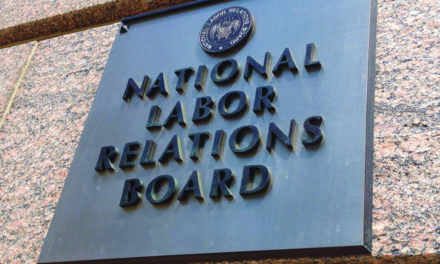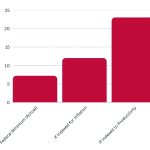“It’s not that we are on unemployment. We did our unemployment stint, and we found something else,” former three-time Memphis bartender of the year, Allan Creasy told the Washington Post in May.
Creasy is one of ten former restaurant employees the Washington Post interviewed about the industry’s hiring problems post-pandemic. He had worked in the industry for more than two decades before the COVID shutdowns. In the interview, Creasy said he’s seen his annual salary decrease steadily since 2011.
In 1982, the hourly tipped minimum wage was $2.13 an hour. Today, that wage is still $2.13 per hour, so is it really COVID causing workers to leave the industry, or is it that they haven’t seen real wage increases in decades?
A new report by the nonprofit advocacy group One Fair Wage found that the reason servers, cooks, and dishwashers are leaving the industry “isn’t because they’re being paid to sit on the couch: It’s because restaurant jobs by and large offer dismal wages and terrible working conditions, especially for women.”
Beginning last fall, the advocacy group conducted an online and phone survey of restaurant workers. Their survey found that more than half of the restaurant workers they spoke to are “strongly considering leaving the industry, with 76 percent saying the reason for that decision is low wages.”
“We’re not short on workers, we’re short on good jobs,” Jillian Melton told researchers. Melton, who had worked at a restaurant in Tennessee for seven years is a mother of five. She told One Fair Wage that she “can’t hope she makes enough on tips during a shift only to earn less than expected.” Melton left the industry last year.
The report from One Fair Wage also showed that most of the workers surveyed, 78 percent, said that having a full, stable, living wage would make them consider staying at their job.
But the study found that dissatisfaction with their jobs went beyond just wages. Hostility and harassment from customers, coworkers or management, lower tips, and fear of COVID also played a part.
But let’s look at the unemployment claim, too. Most of the workers One Fair Wage spoke with said they could not access unemployment benefits or earned much less than they should have due to the subminimum wage for tipped workers and the complications with their tips not being recognized as income. Over 60 percent of the women interviewed said they were either unsure or did not qualify for unemployment benefits, compared to 58 percent of their male counterparts.
As Jillian Melton told One Fair Wage, the industry isn’t short on workers, it’s short on good jobs. ■





